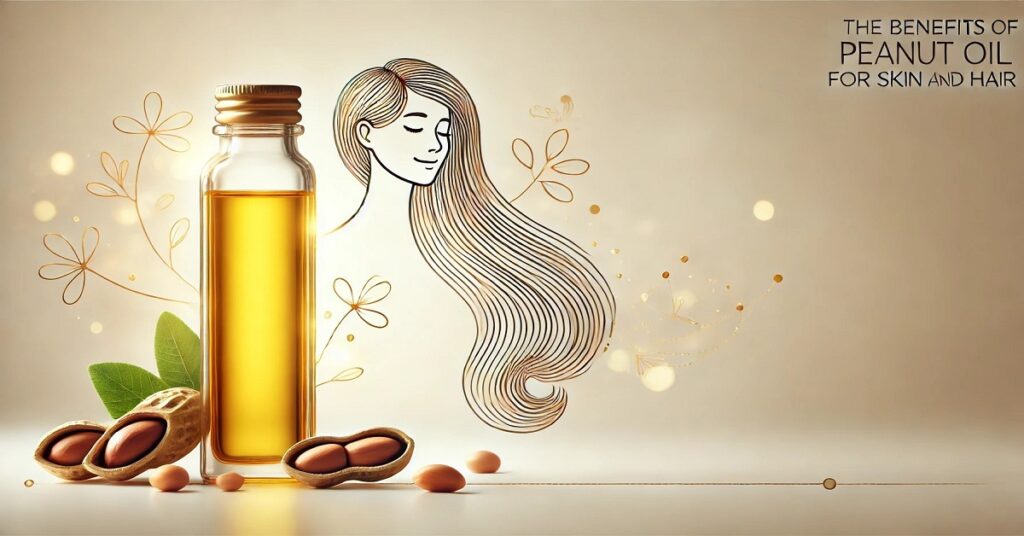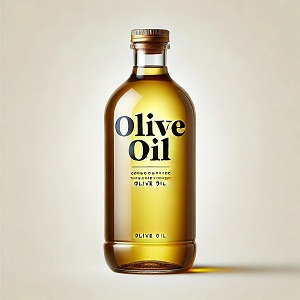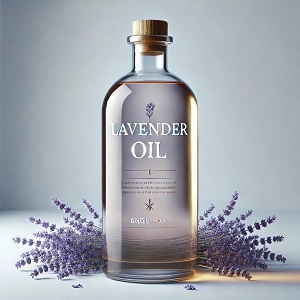
Peanut oil is a wonder of nature that has found its way into kitchens and beauty routines across the globe. Its path goes back thousands of years to when the plant was grown by farmers looking to take advantage of its high-oil seeds.
multi-use golden cooking serum
Peanut oil is prized for its pale, nutty flavor, high smoke point, and noteworthy health-enhancing qualities. This brilliant fluid isn’t just another washroom staple; it’s a profoundly flexible fixing that crosses the boundary between nourishment and skincare. From firm, browned dishes to gleaming skin, Peanut oil brings benefits that few oils can match. In this section, we’ll investigate its numerous inner and outside employments, its impacts on age groups, and how it can be coordinated into your everyday schedule to boost your wellbeing, feed your skin, and change your kitchen.
🟢 Table of Substance
- What is Peanut oil?
- Eatable Peanut Oil or Not?
- My Story with Peanut Oil
- Can All Age Bunches Expend Peanut oil?
- Wellbeing Benefits of Peanut Oil
- Benefits of Peanut Oil for Skin and Hair
- How to Utilize Peanut Oil
- Logical Inquiry about Peanut Oil
- Preferences and Drawbacks
- Peruser Exhortation
- Regularly Inquired Questions
- Speedy Outline
🟢 How to Utilize Peanut Oil
Peanut oil is an inconceivably versatile ingredient in both culinary and personal care routines. Its impartial flavor and feeding properties make it a go-to choice for everything from searing supper to spoiling your skin and hair. Underneath are the foremost viable ways to incorporate this golden oil into your standard of living.
🟢 In Cooking
Peanut oil is exceedingly esteemed for high-heat applications. Whether you’re deep-frying fresh chicken, stir-frying vegetables, or searing steak, it keeps up its steadiness and improves flavor. For the best results, utilize refined Peanut oil for sautéing and simmering, and cold-pressed oil for wrapping up dishes. It’s too perfect for barbecuing vegetables or meats, because it makes a difference in dampness and prevents sticking.
🟢 In serving mixed greens, Dressings
Cold-pressed Peanut oilnut oil includes a scrumptious nutty flavor to vinaigrettes and Blend it with balsamic vinegar, Dijon mustard, and Mix it with balsamic vinegar, Dijon mustard, and selected freshEuropean Medicines Agency (EMA) — Herbal medicinal products, aromatic salad dressing that’s both flavorful and packed with nutritional value.
A reviving and nutritious serving of mixed greens topping. It also sets perfectly with lemon juice and nectar to form light, rich emulsions without added substances. Since it’s rich in supplements, utilizing it cold helps protect its full antioxidant and vitamin content.

🟢 In Skincare
Peanut oil can be applied directly to clean skin as a normal serum or blended with essential oils for added benefits. It works well as an overnight moisturizer, especially for dry skin. Tenderly rub several drops onto your face and neck after washing and allow them to absorb. You’ll wake up with obviously smoother, more hydrated skin.
🟢 In Haircare
As a hair treatment, Peanut oil makes a difference in restoring dry strands and feeding the scalp. Warm a little sum and rub it into your scalp, then spread it through your hair and let it sit for at least 30 minutes. For profound conditioning, wrap your hair in a warm towel and leave it on for a longer time after shampooing. This schedule makes a difference in controlling frizz, fortifying strands, and diminishing split ends.
🟢 In Body Knead
Peanut oil’s smooth, light surface makes it a fabulous base for rub oils. It spreads effortlessly, offers gentle warmth, and profoundly hydrates the skin without clearing out buildup. Mix with basic oils like lavender for unwinding or eucalyptus for muscle help. It’s too reasonable for infant needs when utilized in its purest form and is allergy-tested.
🟢 Logical Inquiry about Peanut Oil
Logical studies have progressively focused on the potential of shelled nut oil for improving healthg. Its supplement composition has shown promising results in areas such as cardiovascular wellness, reducinginflammationn, andenhancing cognitive function. Underneath are a few of the key research-backed experiences.
🟢 Cholesterol Administration
Several studies have shown that the utilization of shelled Peanut oil can lead to significant decreases in LDL cholesterol. Replacing immersed fats with shelled nut oil in the diet has been shown to improve blood lipid profiles and reduce the risk of cardiovascular diseases. One clinical trial demonstrated a quantifiable improvement in supply route well-being after 6 weeks of replacing regular cooking oils with Peanut oil.
🟢 Anti-Inflammatory Action
A growing body of research supports the use of Peanut oil in managing inflammation. Resveratrol, a bioactive component in peanuts, is known to repress pro-inflammatory atoms. That makes a difference in decreasing indications related to joint pain and other fiery conditions. Topical applications can also help reduce skin irritation and aid in the healing of minor irritations.
🟢 Antioxidant Defense
Peanut oil contains cancer-prevention agents, such as tocopherols, which help ccombatstress — a major contributor to aging, cellular breakdown, and degenerative diseases. In a research facility, Peanut oil delayed the oxidation process in cells and maintained DNA integrity. These discoveries strengthen its esteem in preventive well-being care.
🟢 Brain Work and Memory
Omega-6 greasy acids found in Peanut oil are vital for brain function. Logical discoveries suggest an association between Peanut oil consumption and cognitive function, including advanced learning, memory maintenance, and overall mental clarity, particularly in aging populations. It’s that its greasy, corrosive profile underpins neurotransmitter capacities and diminishes brain haze.
🟢 Masters and Cons of Peanut Oil
Peanut oil is versatile, but like all characteristics, it has both qualities and limitations. Here’s an objective look at its points of interest and potential concerns
Cons
- Tall smoke point (450°F) for secure cooking
trigger extreme responses in individuals with sensitivities
- Heart-healthy monounsaturated fats
- Calorically dense foods may lead to weight gain if abused
- It contains vitamin E and cancer-prevention agents
- A few refined oils lose supplements during handling
- Amazing for both culinary and topical use
- Lower in omega-3s compared to flaxseed or chia oil
- Unbiased flavor is reasonable for numerous dishes
- Non-organic sorts may contain chemical buildups
🟢 Peruser Exhortation
In case you’re curious about including Peanut oil in your lifestyle, here are down-to-earth tips to make the most of its benefits:
Select cold-pressed, unrefined peanut oil for skin care and dressing applications to hold supplements.
Use refined Peanut oil for baking and high-heat cooking to reduce smoke and maintain food quality.
Store Peanut oil in a cool, dark cabinet away from direct sunlight.
Recently, conduct a patch test on your skin, particularly if you’ve sensitive skin.
Purchase natural or non-GMO-certified shelled nut oil if you need to dodge chemical-added substances or handling operators.
Dodge utilizes shelled nut oil inside and out; if you or anyone in your family has a shelled nut allergy, please be aware.

Frequently asked questions
Is peanut oil for the skin?
Yes. It’s, for the most part, well-tolerated and profoundly moisturizing. For first-time clients, perform a test on a small area to ensure compatibility.
Can I utilize Peanut oil in hair veils?
Completely. Its feeding properties make it perfect for DIY hair covers. Blend with coconut or castor oil for added quality and sparkle.
How ought I store it?
Store peanut oil in a waterproof container in a cool, dark place. Dodge refrigeration can influence its surface.
Are there any dangers?
The primary concern is shellfish hypersensitivity, which can be severe. Those with known sensitivities must maintain a strategic distance from Peanut oil altogether, even in refined form.
How does it compare to olive oil?
Peanut oil handles warm temperatures better, whereas olive oil contains more omega-3 fatty acids and works best in cold or low-heat applications.
Is Peanut oil great for dry skin?
Yes. It’s rich in emollients and profoundly hydrates flaky, chafed, or broken skin.
Can I blend it with other oils?
Yes. Mixing it with jojoba, almond, or coconut oil can customize the equation for diverse skincare or haircare needs.
Is Peanut oil economical?
If sourced capably, Peanut oil can be an economical choice. Take brands that prioritize morally cultivating and ecologically inviting extraction strategies.
🟢 Peanut Oil Review – Speedy Outline
Peanut oil stands out as one of the most versatile, utilitarian, and health-promoting oils available today. Its tall smoke point and gentle taste make it a favorite in kitchens around the world, whereas its skin and hair benefits lift it into the domain of magnificence and wellness. With solid antioxidant properties, heart-healthy fats, and a gentle effect on sensitive skin, Peanut oil may be a genuine multitasker.
Whether you’re a beginner cook, a skincare devotee, or someone investigating comprehensive wellness, Peanut oil fits into your schedule. Be cautious if hypersensitivities are present, and always opt for high-quality, cold-pressed forms when possible. Utilize it intelligently and consistently, and you’ll soon wonder how you lived without it.


